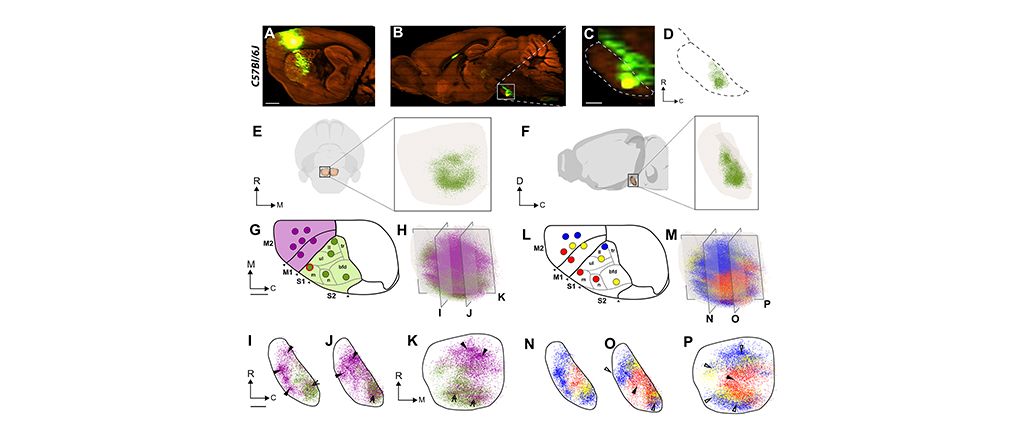
EBRAINS-enabled research provides new insight into abnormal brain development

Topographical organization of corticopontine projections in wild-type mice.
Abnormal brain development causes several debilitating brain disorders afflicting young children, but the mechanisms underlying the normal growth and maturation of the brain are still not fully understood. Both advanced experimental research in animal models and new approaches to data analyses and data sharing are needed to identify the key factors involved in neurodevelopmental disorders.
In a recent collaboration, French and Norwegian researchers have shown that a gene responsible for specifying functional identities of cerebral cortical areas is involved in the early establishment of neural networks in the mouse brain. Using several genetically engineered mouse models, PhD student Chiara Tocco in the laboratory of Michèle Studer (University Côte d'Azur, France) experimentally investigated the effects of gene inactivation on the early development of the corticopontine tract, an important tract for coordinating voluntary fine movements in mammalian species.
Together with PhD student Martin Øvsthus in the laboratory of Jan G. Bjaalie and Trygve Leergaard (University of Oslo, Norway), the team utilized a large public dataset and a three-dimensional brain atlas provided by the EBRAINS research infrastructure to pinpoint neural connectivity changes in response to altered gene expression. The data is available here and here.
“Our findings provide new insight into the genetic factors that allow the different regions of the nervous system to communicate and form functional networks. This is important for improving our understanding of patients with developmental coordination disorders. Most importantly, our findings pave the way for new experimental studies of cortical development."
Principal investigator
"This study both used and contributed to open data. This demonstrates how experimental brain research gains additional momentum through open data that are shared following the FAIR guiding principles."
Leader of EBRAINS Data services


